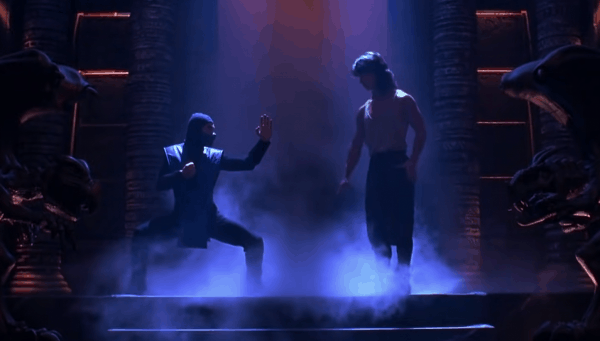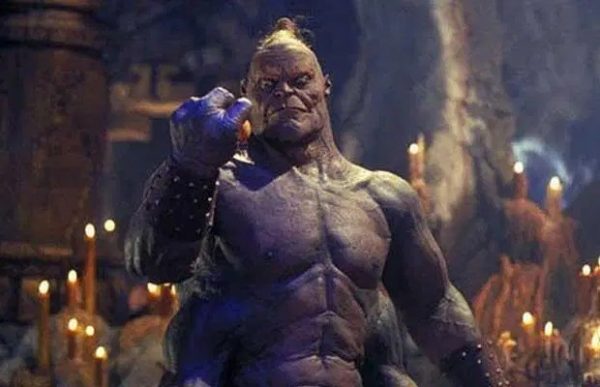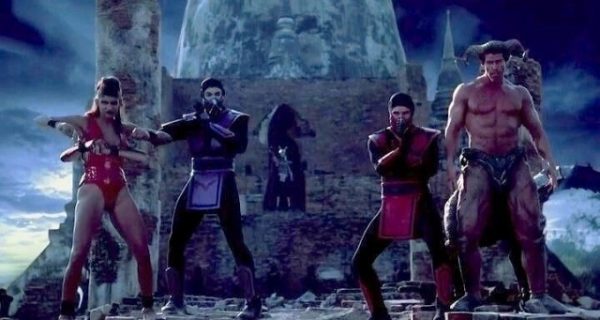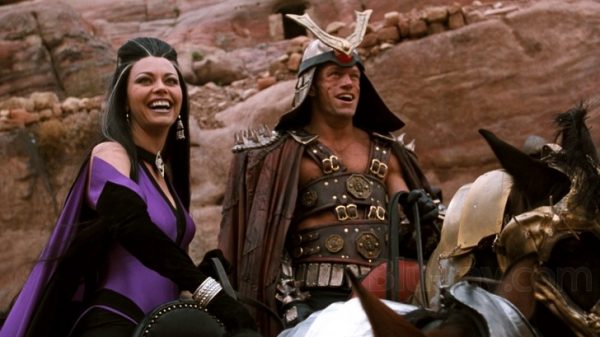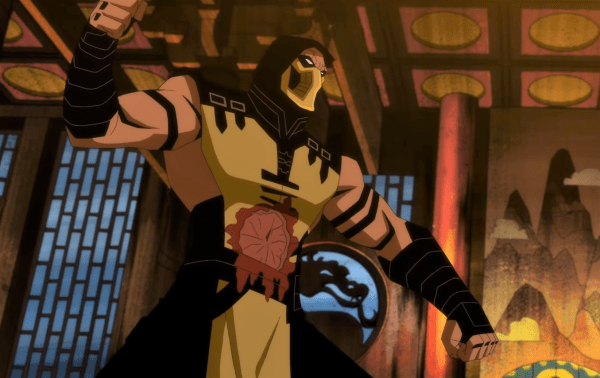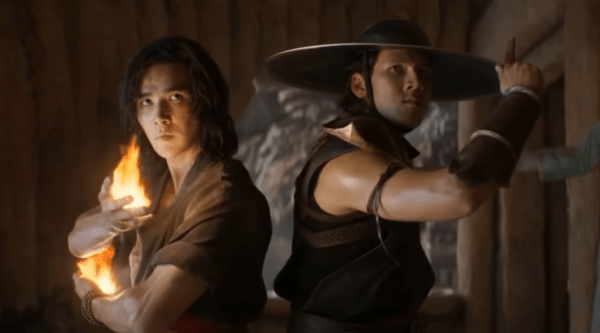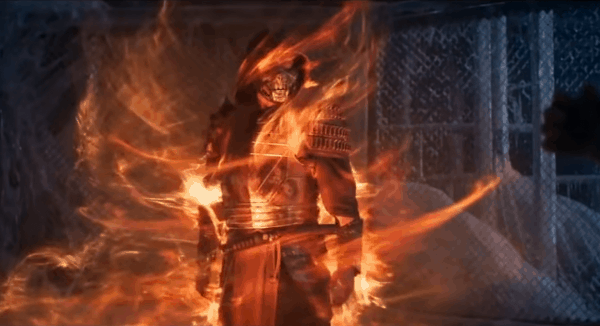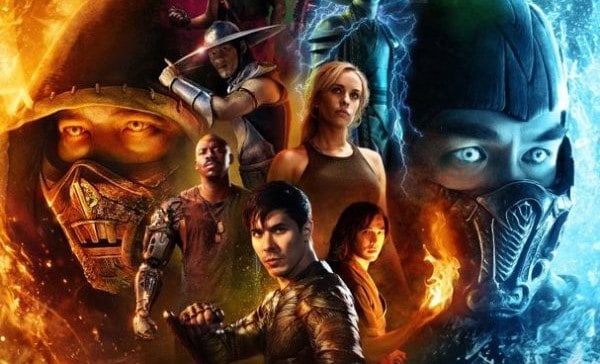Chris Gelderd delves into the Mortal Kombat movie franchise…
American game designers, writers and friends Ed Boon and John Tobias had a dream in 1990. It had been three years since the arcade beat-‘em up Street Fighter, created by Takashi Nishiyama and Hiroshi Matsumoto, made its debut and helped introduce a new genre of gaming.
As Capcom improved their fighting franchise with the legendary Street Fighter II: The World Warrior making it’s way into arcades around the world in 1991, the world was ready for more side-scrolling beat ’em up video games.
Developed as a nod to their martial arts film icon Jean-Claude Van Damme (Johnny Cage was created in his template), Boon and Tobias crafted a fantastical fighting game that pitted heroes and villains of Earth against fighters from other dimensions, with Earth itself as the prize. If the Earth fighters win, their planet is safe. If they lose, then Earth becomes the playground for evil Outworld Emperor Shao Kahn and his minions.
While Capcom catered to a family friendly audience, Boon and Tobias went straight for the hardcore older gamer market. It’s safe to say this near photo-realistic, ultra-violent, immersive and entertaining simple smash hit paved the way for the more mature side-scrolling beat-‘em up games we know them today.
Mortal Kombat presented a genre defining amount of detail such as characters such as Scorpion, Sub-Zero and Raiden, stomach churning violence, outrageous attack moves and the photorealism of using actors and stunt performers to motion capture the characters where possible. So popular and ground-breaking was the game, that it has spawned 18 more games across several platforms, the latest being Mortal Kombat 11 in 2019.
But no successful gaming franchise can evade a lucrative turn in Hollywood. Be it a sequel-spawning Resident Evil, an A-list leading Tomb Raider or an animated Angry Birds, the market is there for video game adaptations, but they very rarely deliver expectations. Mortal Kombat was only the fourth major cinematic adaptation of a video game, following 1992’s Super Mario Bros. and 1994’s combo of Double Dragon and Street Fighter: The Ultimate Battle.
Mortal Kombat (1995)
With New Line Cinema backing British director Paul W.S. Anderson to deliver on Boon and Tobias’ creation for the big screen, Mortal Kombat landed in the summer of ’95. A roster of big names was attached such as Christopher Lambert as Lord Raiden, Cary-Hiroyuki Tagawa as evil sorcerer Shang Tsung, Linden Ashby as Johnny Cage, Bridgette Wilson as Sonya Blade, Talisa Soto as Kitana and Robin Shou as Liu Kang.
The production and set design were as authentic as possible to bring franchise favourites to life. Everything from costumes, props and soundtrack hit the right note to please fans and casual audiences who loved some martial arts action. The dangerous yellow frame of Scorpion was unmistakable, together with his iconic mask and “Get over here!” taunt, and we even had Goro and his imposing four-armed frame in all his practical/model effect glory.
Special effects brought the dangerous realm of Outworld to life, and the story was simple and easy to follow without cramming too much into one film. There was tongue-in-cheek humour, of course, and it didn’t go overboard with the expected violence, but hinted a great deal at many of the classic fighting moves and fatalities without preventing younger audiences’ admittance who wanted to see the film.
Another thing that was refreshing was the use of martial arts as a benchmark for the fight scenes. Rather than just all out hits and kicks and brawls like Street Fighter, Mortal Kombat retained that video game combat style led by Robin Shou’s Liu Kang, with the main cast taught, martial arts to give their characters a recognisable trait from the video game, and many of the supporting characters were played by expert martial artists and stuntmen to add some extra power to the fight sequences. Add in a pulse-pounding synth score by George S. Clinton and all the elements came together for a memorable and action-packed summer blockbuster.
The proof that Mortal Kombat was a crowd pleaser is evident in the box-office numbers, blowing away competition with over $124m in takings. In context, Mortal Kombat earned more in 1995 than recent video game adaptations from Hollywood such as 2005’s Doom, 2010’s Tekken and 2012’s Silent Hill: Revelation.
SEE ALSO: Looking Back At The Mortal Kombat Movie 25 Years On
Mortal Kombat: Annihilation (1997)
Much like the video game series, the movie franchise for Mortal Kombat was in full swing after the success of the debut film, and so a sequel was a no-brainer. Releasing in November 1997, just two years after the original, this promised a far greater, far more unrestrained adventure incorporating elements from the video game series.
But something was off right from the start: the overhauled cast. Bar Robin Shou as Liu Kang and Talisa Soto as Kitana, all the original cast were replaced with what can only be described as a grade down in acting talent. For reasons unknown, (but possibly due to original director Paul W.S. Anderson not helming the film) actors such as Christopher Lambert, Bridgette Wilson, Linden Ashby and Chris Casamassa were scrapped in favour of James Remar, Sandra Hess, Chris Conrad and J.J Perry respectively.
Perhaps the greatest crime to accompany the sudden change of faces for a film that takes place literally seconds after the original ended, was to kill of one of the most popular characters in the franchise, Johnny Cage. Within minutes, Cage is killed at the hands of hulking Emperor Shao Khan and everything else just falls in around itself. No amount of CGI laden fight sequences or extravagant set design makes up for the fact this film looks and feels like a big step down in quality and production. It comes across often as a TV movie, rather than a big-screen blockbuster sequel.
While director John R. Leonetti came in to replace Anderson, the tone of ‘Mortal Kombat: Annihilation’ was off. It tried too hard to please franchise fans at the sacrifice of an interesting, expansive story. Shao Khan is unmasked for most of the film and seen a basic human, losing his air of hulking God-like presence. Dozens of characters are shoe-horned in to expand the plot and try to add new relationships to proceedings such as Musetta Vander as Queen Sindel, Irina Pantaeva as Jade, Litefoot as Nightwolf and Dennis Keiffer as Baraka. Many of these characters were just there for more gratuitous fight scenes, which remain entertaining, but lack the power and originality of the original.
The script was wooden, as were most of the less-than-convincing cast, and effects were of a lower standard than previously seen. It also tried to take many of the characters out of their established identities to add new depth to them, such as Raiden becoming a mortal and forgoing most of what makes his character both interesting and recognisable.
It was a total overhaul in cast and crew, and it shows. Sadly, little remains to continue the adventure started in 1995 and this is an empty, hollow offering that just insults itself as an action / fantasy film by trying too hard to please. The box-office spoke for itself. Just over $50m on a $30m budget. The planned third entry was scrapped, and the movie franchise was all but over. Fatality.
Mortal Kombat Legends: Scorpion’s Revenge (2020)
As the Mortal Kombat movie franchise bubbled away with the rumours of a new live-action reboot (rumours that had been bubbling away for nearly a decade), Warner Bros. Animation presented their first effort of an animated Mortal Kombat feature since the Midway Games franchise acquisition. With solid productions of the DC animated movies, the series was in good hands.
Scorpion’s Revenge teased what could have been a huge animated franchise for classic characters to star in. Scorpion, a firm fan and franchise favourite, was explored here in a more mature light as both character and fighter. What led to him being the fighter we know him as, and what relationships created his almost barbaric, Satanic attitude to the world. These elements and more were explored in entertaining ways, with cutting edge animation, slick design and cast.
Key characters were back including Johnny Cage, Sub-Zero, Jax and Kano, along with newcomers to the films such as Quan Chi and Shinnok. With the success of the video game Mortal Kombat 11, this was a perfect partner tie-in to reignite more love and appreciation for the franchise taking a brand-new direction that worked.
Mortal Kombat (2021)
Announced in Spring 2019, the highly anticipated Mortal Kombat reboot began shooting across South Australia with a release date of March 2021. After nearly a decade of pitches, creative differences and new talent brought on to see where the big-screen franchise could go after the fallout from 1997, producer James Wan (of Saw, Furious 7 and Aquaman fame) headlined the first of the big names attached to the picture. Director Simon McQuoid makes his debut feature and has worked from a story by Greg Russo and Dave Callaham.
Acting as a reboot to the movie franchise, we are treated to an original character in the lead. MMC fighter Cole Young played by Lewis Tan. Young has a birthmark of the familiar dragon symbol of the multi-realm tournament but doesn’t know what it means. When he finds others also branded, he starts to learn of his importance.
Hunted by mysterious Lin-Kuei assassins, including Joe Taslim’s Sub-Zero, Young meets fellow Earth warriors Sonya Blade (Jessica McNamee), Kano (Josh Lawson), Jax (Mehcad Brooks) and Liu Kang (Ludi Lin). These chosen few are to take part in Mortal Kombat against a dangerous host of Outworld fighters and battle to protect Earth and emerge triumphant, all the while learning more about their destiny and heritage with each battle.
Through some wonderfully teasing marketing materials, we have been promised the appearance of favourites such as Scorpion, Raiden, Kung Lao, Kabal, Mileena and Shang Tsung but in new, creative ways and not replicated from the 1995 original. There also is the brave move of having a brand-new character act as lead, with Lewis Tan (known for his stunt work in Olympus Has Fallen and Pirates of the Caribbean taking up the mantle. Seeing the film and story through the eyes of an original character can only work in the favour of audiences, new and old to the franchise, who want to explore this new era without many preconceptions or expectations.
It has already been confirmed that this film will be the first in the franchise to receive a US ‘R’ rating. This promises a good amount of franchise favourite violence and fatalities that have made the series so memorable and differentiates them from the standard beat ‘em up. If you’re going to make a new movie about Mortal Kombat, regardless of how more grounded you want it, you need to include the key points that fans want to see without going overkill. It’s a delicate balance to get right, but from what we have seen of this new era of Kombat, things look promising.
Only time will tell if Mortal Kombat can reclaim its place as an audience favourite as a new video game adaptation, and if this will green light future sequels and expansions of the lore.
Chris Gelderd
“In “Mortal Kombat,” MMA fighter Cole Young, accustomed to taking a beating for money, is unaware of his heritage—or why Outworld’s Emperor Shang Tsung has sent his best warrior, Sub-Zero, an otherworldly Cryomancer, to hunt Cole down. Fearing for his family’s safety, Cole goes in search of Sonya Blade at the direction of Jax, a Special Forces Major who bears the same strange dragon marking Cole was born with. Soon, he finds himself at the temple of Lord Raiden, an Elder God and the protector of Earthrealm, who grants sanctuary to those who bear the mark. Here, Cole trains with experienced warriors Liu Kang, Kung Lao and rogue mercenary Kano, as he prepares to stand with Earth’s greatest champions against the enemies of Outworld in a high stakes battle for the universe. But will Cole be pushed hard enough to unlock his arcana—the immense power from within his soul—in time to save not only his family, but to stop Outworld once and for all?”
Mortal Kombat stars Lewis Tan as Cole Young; Jessica McNamee as Sonya Blade; Josh Lawson as Kano; Tadanobu Asano as Lord Raiden; Mehcad Brooks as Jackson “Jax” Bridges; Ludi Lin as Liu Kang; Chin Han as Shang Tsung; Joe Taslim as Bi-Han and Sub-Zero; and Hiroyuki Sanada as Hanzo Hasashi and Scorpion; Max Huang as Kung Lao; Sisi Stringer as Mileena; Matilda Kimber as Emily Young; Laura Brent as Allison Young; and Daniel Nelson as Kabal.



